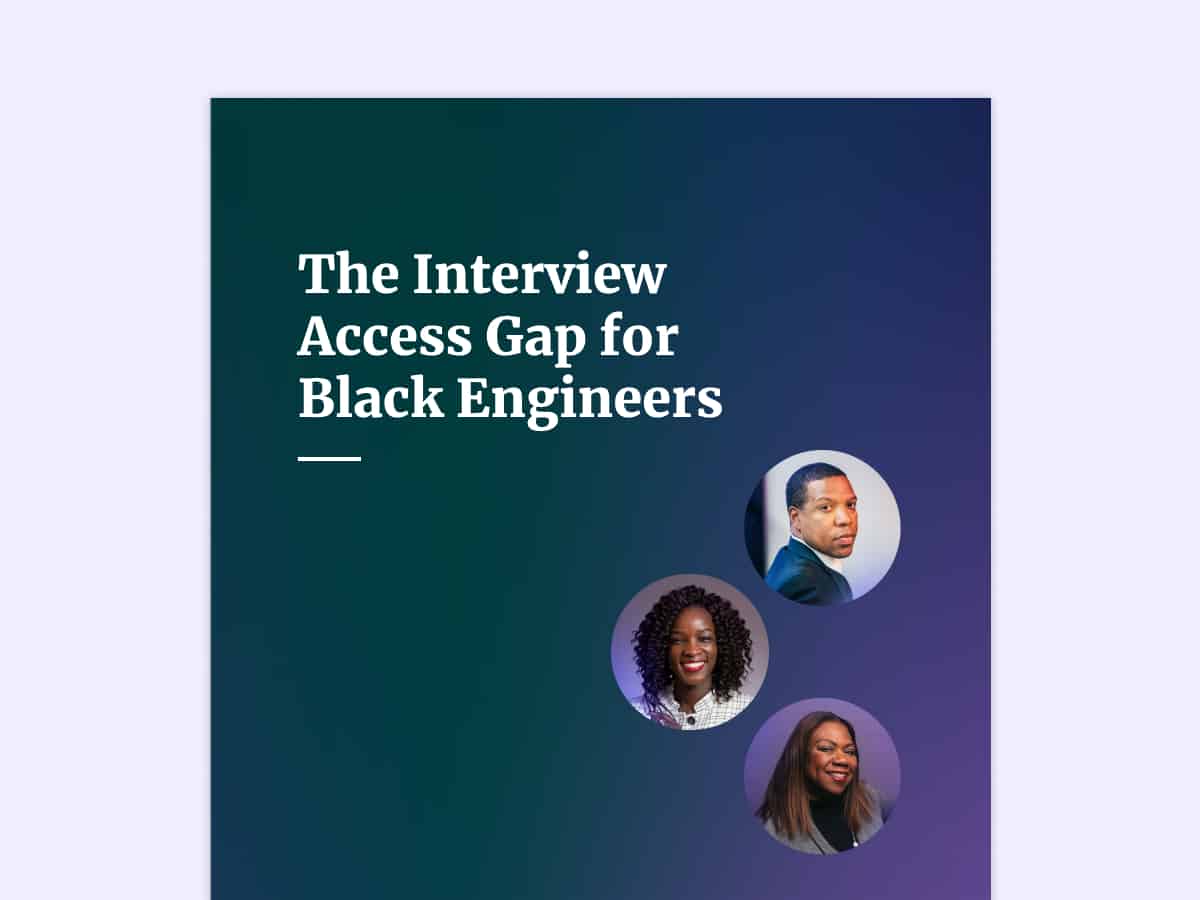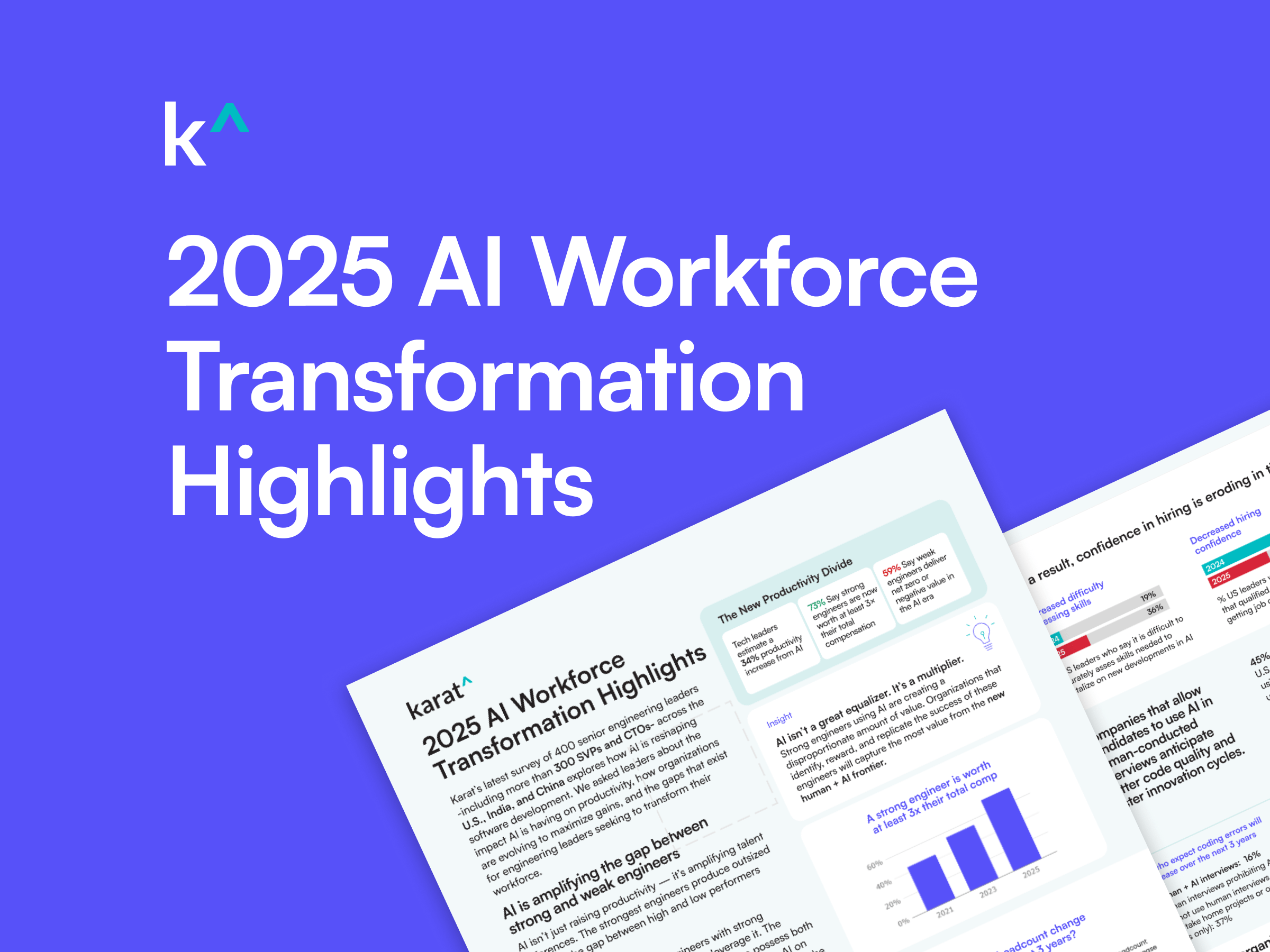Reports
The Interview Access Gap for Black Engineers


Get the report
A note from our co-founder
Mohit Bhende and I founded Karat to solve two big problems. Too many companies are struggling to hire the engineering talent they need to succeed, and too many talented people are not getting a fair shot at the professional opportunities they seek. We focused on transforming the interview to make the process of hiring software engineers more fair, predictive, and enjoyable.
Karat launched Brilliant Black Minds to provide interview practice, feedback, and professional development workshops to Black engineers. We also partnered with Howard University to conduct research exploring how systemic inequities in education and limited access to people who work in tech make it more difficult for talented Black engineers to get great jobs. We examined factors that contribute to interview anxiety and imposter syndrome, and looked at ways to close the interview access gap that exists today.
Using the insights from our student survey and focus groups, we sought input from our academic and industry partners, and developed three concrete ways for organizations to make technical hiring more inclusive to ensure that the engineers who are coding our future represent all of us. I hope you find the report as inspiring as we do.
-Jeffrey Spector, Karat president and co-founder
Black engineers and computer science students share their first-hand experiences and how exposure to CS education, access to networks in the tech industry, and interview practice opportunities impact their confidence and ability to land jobs in tech.
Highlights from The Interview Access Gap for Black Engineers
In 2020, 64 percent of software engineers in the United States were White, while just six percent were Black or African American. Despite decades of DEI initiatives and promises, the world of tech is simply not moving the needle fast enough.
One reason is the interview access gap for Black engineers. This gap exists because of systemic inequity in education and structural barriers in tech. The gap amplifies interview anxiety and plants the seeds of imposter syndrome.
The good news is that practice interviews are helping Black computer science students close the gap. However, the onus to close the gap can’t fall entirely on Black engineers. Technical hiring must evolve. This report quantifies the interview access gap and identifies three areas where organizations can make meaningful and immediate changes.
Key Findings
Structural inequities delay exposure to computer science education and make it more difficult for Black engineers to start careers in tech.

Earlier exposure to computer science also correlates to lower levels of imposter syndrome, which is a persistent problem for Black engineers throughout their careers. Low imposter syndrome respondents averaged their first exposure to computer science at 12.8 years, compared to over 15 for moderate and high imposter syndrome levels.
Proximity and access to people working in the tech sector improves interview confidence, but the under-representation of Black engineers limits that access.

Interview practice helps overcome the lack of structural access to the technology industry.


There has never been a shortage of brilliance found in Black America. Only limits to the exposure, access, and fairness offered. The 300 students who participated in this survey represent just a small fraction of the deep pool of young and brilliant talent coming from HBCUs. They are entering the job market and bringing their unique perspectives and talents to the world of tech.
Download the full report to learn what your organization can do to close the access gaps and make technical hiring more efficient, equitable, and effective.
Why interview feedback and practice matters for Black engineers
To learn more about the Brilliant Black Minds program, or to set up a deeper conversation about equitable hiring contact us.
Related Resources

Reports
The new hiring challenge: identifying AI-ready engineers AI has boosted engineering productivity, with leaders estimating a 34% average productivity lift. Leading organizations are evolving their hiring processes with human-led, AI-native interviews that evaluate how engineers collaborate with AI in real workflows. Key findings from the report: Download the full report to access exclusive data on: […]

Reports
AI is rewriting the rules of engineering productivity and the gap between top performers and everyone else is widening fast. In Karat’s upcoming 2025 AI Workforce Transformation Report, 400 senior engineering leaders reveal how AI is reshaping hiring, readiness, and global competitiveness.

Reports
India emerges as a top tech talent hub in 2025; explore hiring trends, challenges, and strategies to secure the best engineers.